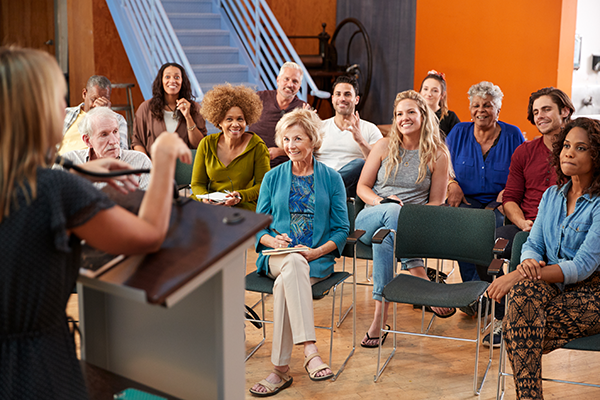Throughout the COVID-19 Pandemic, child care resource and referral (CCR&R) agencies stepped up and supported child care providers within their service areas in assisting with supplies, personal protective equipment and many other needs of child care programs. One of the most common themes or needs identified by child care professionals was support for the social-emotional needs of children.
Based on that need, Child Care Aware of America’s Emergency Preparedness, Response and Recovery team was able to identify a funder to provide resources to CCR&R agencies in Minnesota, South Dakota, Kansas and Arkansas through the “Building Resiliency Skills in Caregivers & Children” project. These quick-response projects were focused in the Midwest and Plains states and focused on identified social-emotional supports for children and caregivers. Each project provided an approach that could be easily transferred to preparedness, response and recovery for natural disasters (not exclusive to COVID-19 and other public health emergencies). In total, 1,675 providers and 28,643 children, including those living on Native American reservations, English Language Learners and legally non-licensed child care providers were impacted through this project, and the value and benefits of this work continue to grow.
Grant-funded Projects
The goal of these projects was to support the social-emotional needs of children and caregivers to help build resiliency skills, which should enable individuals to be better prepared to respond to the emotional stress brought on by emergencies and disasters.
Some of the innovative approaches and highlights of these special projects include:- Self-care workshops for child care providers;
- Virtual support sessions for child care providers;
- Art-focused workshops for providers and kits for children
- Child care provider training and technical assistance, including the distribution of children's books to child care providers to help support the social-emotional needs of children in their care;
- Providing online Conscious Discipline Training on building resiliency and implementing new strategies with children and families; and
- Pairing social/emotional resources with access to a coach/child care consultant visit.
| Example of Impact We were able to reach early educators through this high-quality training opportunity during a high-need time in their lives. This funding not only helped us connect educators to high-quality training that is typically not affordable in our budgets or theirs, but it also provided a platform for us to provide extra coaching supports and new relationships with providers in our widespread service delivery area. -- CCR&R staff member |
Building Resiliency
Each of these unique and innovative projects helped to ensure that communities in the region were better-prepared and more resilient should disaster strike. Better-prepared and resilient communities mean a better prepared and resilient workforce, as well as healthier and thriving children and families. This work was only the start and the impact of these projects will be felt by many for years to come.
For more information on the Emergency Preparedness, Response and Recovery team at Child Care Aware of America, as well as resources, tips and tools focused on all types of emergencies and disasters, please visit childcareprepare.org.
|
Examples of Impact We were able to reach rural providers through this grant that were experiencing a high level of isolation and managing their own emotional turmoil during COVID, as well as the heightened emotional needs of the children in their care. |





